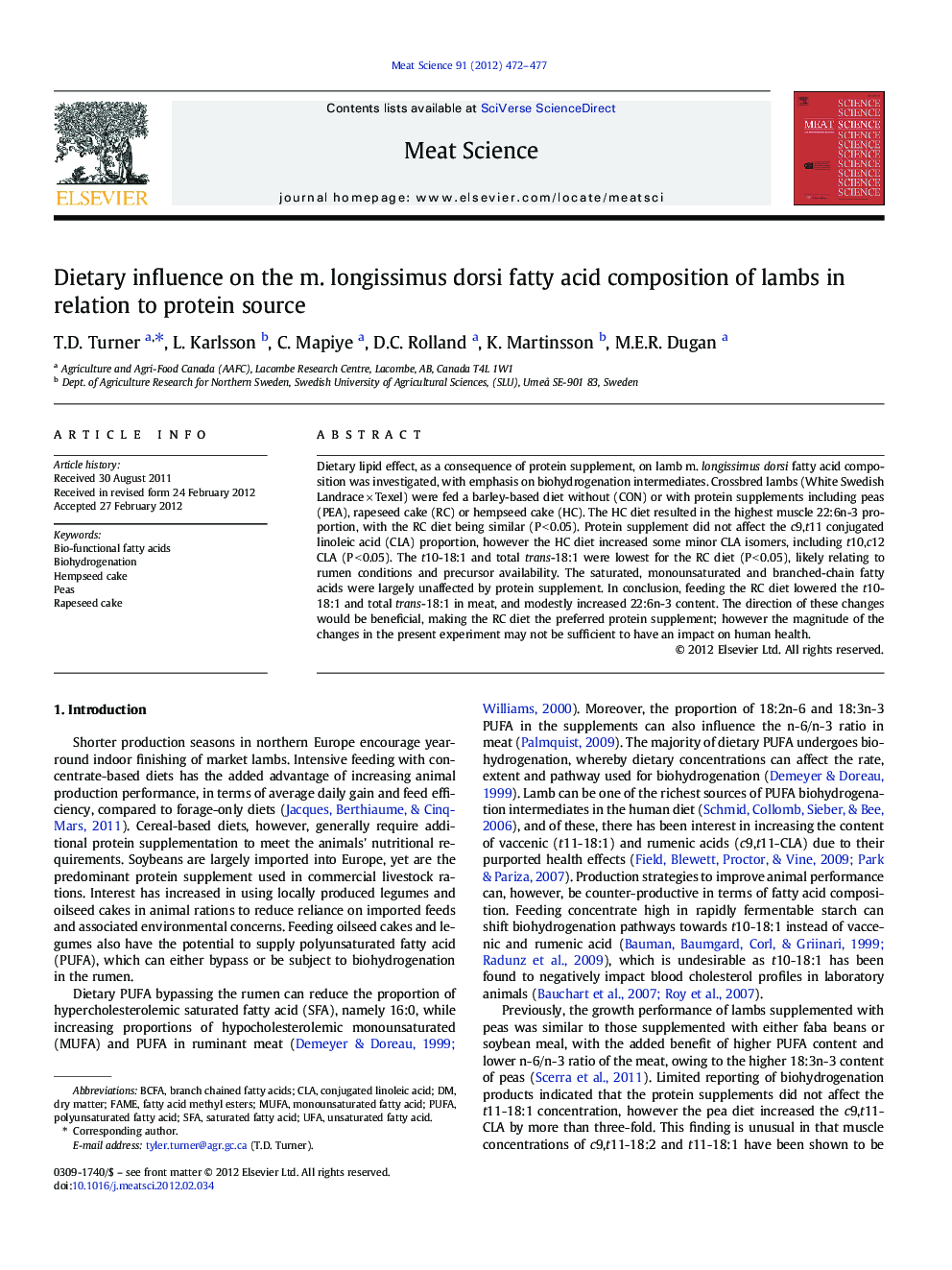| Article ID | Journal | Published Year | Pages | File Type |
|---|---|---|---|---|
| 5792276 | Meat Science | 2012 | 6 Pages |
Dietary lipid effect, as a consequence of protein supplement, on lamb m. longissimus dorsi fatty acid composition was investigated, with emphasis on biohydrogenation intermediates. Crossbred lambs (White Swedish Landrace Ã Texel) were fed a barley-based diet without (CON) or with protein supplements including peas (PEA), rapeseed cake (RC) or hempseed cake (HC). The HC diet resulted in the highest muscle 22:6n-3 proportion, with the RC diet being similar (P < 0.05). Protein supplement did not affect the c9,t11 conjugated linoleic acid (CLA) proportion, however the HC diet increased some minor CLA isomers, including t10,c12 CLA (P < 0.05). The t10-18:1 and total trans-18:1 were lowest for the RC diet (P < 0.05), likely relating to rumen conditions and precursor availability. The saturated, monounsaturated and branched-chain fatty acids were largely unaffected by protein supplement. In conclusion, feeding the RC diet lowered the t10-18:1 and total trans-18:1 in meat, and modestly increased 22:6n-3 content. The direction of these changes would be beneficial, making the RC diet the preferred protein supplement; however the magnitude of the changes in the present experiment may not be sufficient to have an impact on human health.
âºLipids in protein source for lamb diets affect muscle fatty acids. âºRapeseed cake reduced meat trans-fatty acid content. âºHempseed cake increased meat n-3 long-chain polyunsaturated fatty acids.
